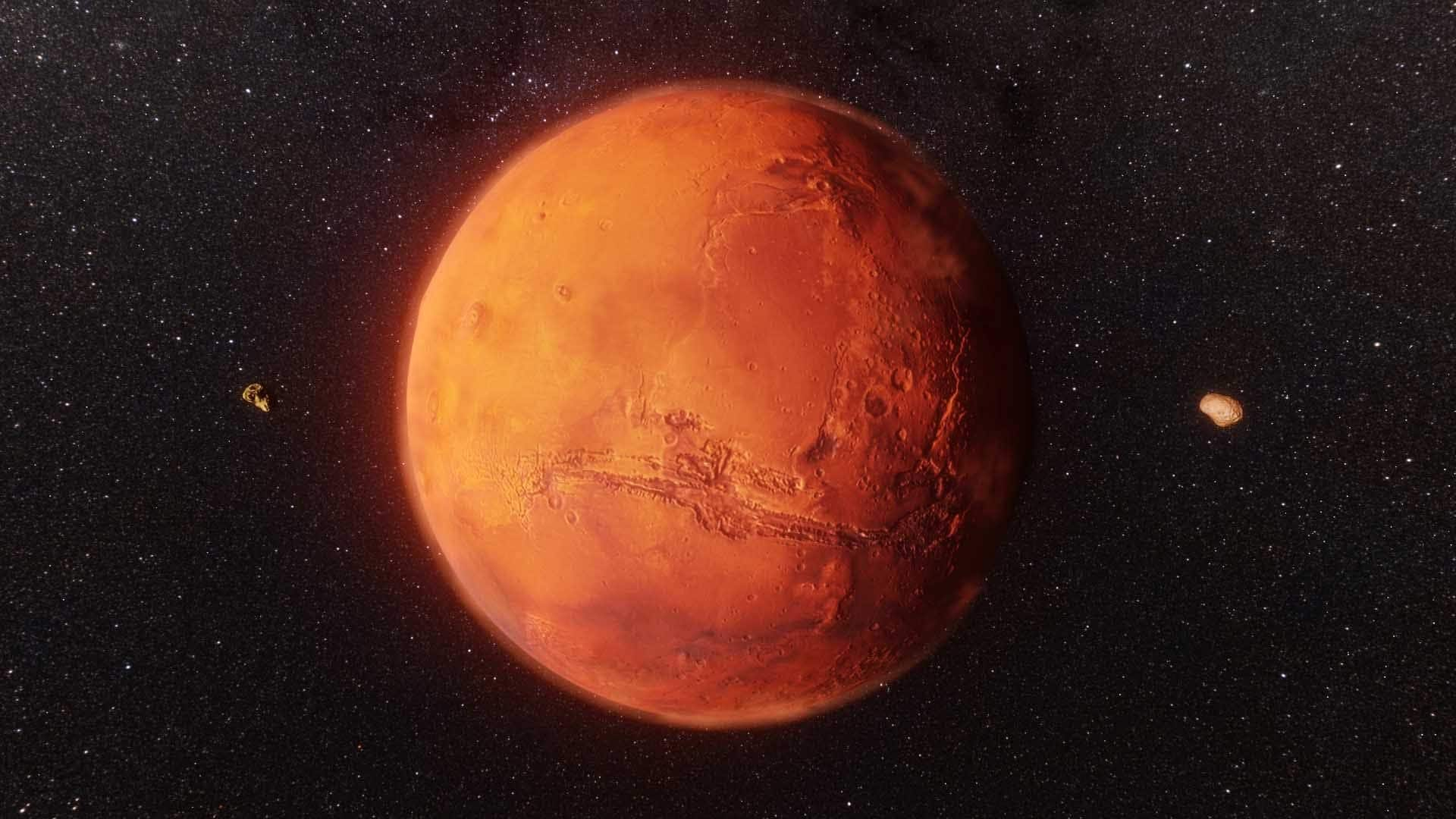
Harvard study suggests Mars was habitable 3.9 billion years ago
What's the story
In a groundbreaking study, Sarah Steele from Harvard's Paleomagnetics Lab has revealed that Mars may have been habitable some 3.9 billion years ago.
Published in Nature Communications, this timeline is later than the previously estimated 4.1 billion years, suggesting that the magnetic field may have survived for hundreds of millions of years longer than previously believed.
The research team employed advanced simulation and computer modeling techniques to estimate the age of Mars' global magnetic field or "dynamo."
Theory revision
Challenging previous theories about Mars' magnetic field
The research team, including senior author Roger Fu, proposed that Mars' dynamo could have existed for a longer duration than previously estimated.
This theory challenges the widely accepted belief that large craters on Mars, known for their weak magnetism, were formed after the dynamo ceased to function.
The team conducted experiments simulating how these craters cool down and become magnetized over time.
Magnetic study
Understanding Mars' magnetic field through paleomagnetics
The researchers employed principles of paleomagnetics, the study of a planet's prehistoric magnetic field, to decipher Mars' magnetic history.
They discovered that ferromagnetic minerals in rock align with surrounding magnetic fields when heated but become "locked in" once cooled.
This process essentially makes these minerals fossilized magnetic fields that can be analyzed billions of years later, offering valuable insights into Mars' past.
Timeline reevaluation
Reevaluating the timeline of Mars' magnetic field
The team examined basins on Mars with weak magnetic fields and suggested these were created while Mars' dynamo was undergoing a polarity reversal.
This theory contradicts the widely held notion that large craters on Mars, characterized by weak magnetism, were created after the dynamo stopped working.
Steele said, "We are basically showing that there may not have ever been a good reason to assume Mars' dynamo shut down early."
Innovative approach
New research methods reveal Mars' magnetic history
Using a famous Martian meteorite, Allan Hills 84001, and a powerful quantum diamond microscope, the researchers inferred a longer-lasting magnetic field until 3.9 billion years ago.
By studying different magnetic populations in thin slices of the rock, the researchers provided new insights into Mars' habitability timeline.
Steele expressed excitement about challenging long-held theories and gratitude for the openness of the planetary research community to new interpretations.